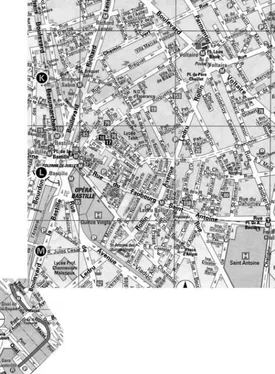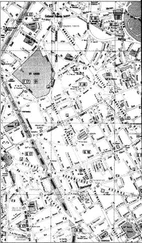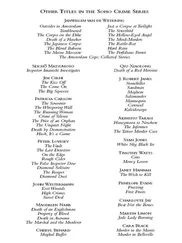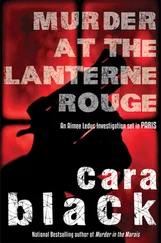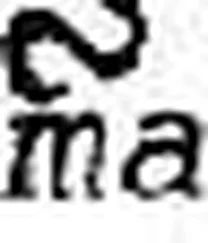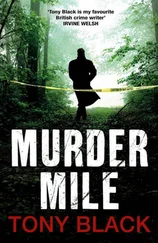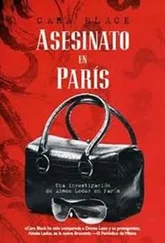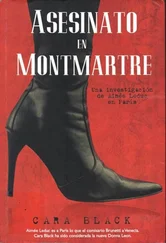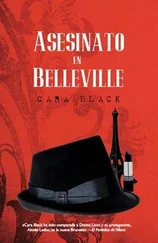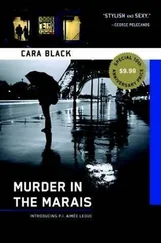He pored over the notes made by the quai des Orfèvres’ psychological profiler, the photos of the victims, details from the forensic lab reports, the few witnesses’ and neighbors’ accounts. Then he looked at the map of the Bastille quartier . . . at the location of the attacks.
No question remained in his mind. Vaduz had committed the murders described in the dossier. But this last one, of Josiane Dolet, smelled off. Like an overripe Brie.
His conscience had to be clear . . . his nights were bad enough without Marie and his daughters. Whiskey deadened the pain for only so long. He’d wake in the middle of the night, thinking he had to get the girls up for school. But a yellow pool of light on the bare wooden floor was his only companion.
Jean-Claude Leduc’s aphorisms from Loïc’s rookie year echoed in his head: “If you smell something, follow your nose. . . . When it pecks at your shoulder night and day, pay attention.”
What had he missed?
With the combination of his huge caseload, the few of hours of restless sleep, the endless espresso on prolonged stakeouts, and the flask of whiskey he’d taken to keeping in his vest pocket . . . he couldn’t be sure.
Something nagged at him. Was it the remark Aimée had made about the passage . . . its narrowness? Loïc chewed the end of his pen. He stood back and surveyed the enlarged bus and Métro map on the wall.
Vaduz’s victims’ trails aligned themselves in the few blocks where the #86 and #91 bus routes merged. This corresponded with the Bastille, Ledru Rollin and Faidherbe Chaligny stops along the purple Métro line. Loïc studied the detective’s notes verifying that the suspect and victims had taken the same bus to work; his customary bars, cafés, and laundromats in the quartier which were also frequented by the victims. This commonality had led them to Vaduz, a seasonal prop mover at the new Opéra.
Bellan reread the file notes. Vaduz picked the same type, over and over again. All the women resembled his cousin: blonde, curvaceous, glamorous. The cousin had ignored the introverted Vaduz since childhood, refusing to introduce him to her friends. But he’d fixated on her, covered his walls with obsessive poems and drawings reflecting the fantasies he’d had about her. On weekends when he’d visited the family, she’d had boys with her in her room . Though she belittled and rebuffed him, he claimed he loved her.
But Josiane Dolet was rail-thin, stylish, and reserved in appearance. Wealthy and left-leaning, she’d followed her family’s tradition and joined the family newspaper. When the paper merged with Libération, she went freelance, writing investigative exposés and garnering respect for solid reporting.
Josiane Dolet seemed an unusual choice of victim for Vaduz. She was the most intellectual of them all. Had that made her the most threatening? But when he attacked women, they had no time for discussion.
Yet, Bellan reasoned, his selection of victims showed premeditation and a pattern. Methodical, though sick, he’d taken his time. His victims either lived in a passage or walked through one to their apartments. But Josiane Dolet’s apartment overlooked the glass-roofed market in Place d’Aligré; she would walk through the open square to reach it.
The Préfet was breathing down his neck; the report had to be submitted by noon. How did Aimée figure in this? Loïc couldn’t put his finger on it, but something troubled him.
“Bellan! Line 3,” shouted the sergeant from the front desk.
He picked up the wall phone. “Oui. ”
“Loïc,” Marie said, her voice faint. “Guillaume’s sick.”
And the world stopped. All he heard was a heavy silence on the other end, then the whine of a scooter by the window.
“What is it?”
“Strep throat,” she said.
Poor Marie, she must be overwhelmed to call him.
“Marie, the girls had that last year, it wasn’t so serious.”
“They’re worried about his kidneys.”
“Why?”
“For babies like him, it’s serious. We’re at the hospital in Vannes,” she said. “He’s in intensive care. As his father, I thought you should know.”
The phone went dead.
He couldn’t leave Marie to face this alone. Something caved inside him. And all he could think of were those little pink pearllike toes.
He closed the files, pulled on his jacket, and hailed a taxi for Gare Montparnasse.
Wednesday Afternoon
MATHIEU FINGERED THE DRIED orange skin pocked with cloves, shrunken hard . . . wrinkled like a pecan. A Provençal custom, drying oranges to scent cupboards. The bittersweet remnant of the old Comte de Breuve. Mathieu’s mind went back to his last visit in early September when the Comte had summoned him to the chateau outside Paris.
This visit was different from those on which he’d accompanied his father. The Comte, gaunt, wearing worn corduroys and an ascot tucked into his old wool Shetland vest, had aged. His nose seemed more prominent and the broken capillaries in his face more pronounced.
“Let’s hurry, there’s not much time,” the Comte had said, his look furtive. Then he commenced complaining that he couldn’t afford to heat the château, much less dwell in it. So he lived in the Orangerie, a stone and glass construction nestled among the outbuildings housing rusted farm equipment.
The catering firm that had rented out the château for parties and weddings had vacated, as evidenced by the dry fountains and overgrown gardens. Wild hyacinths peeked from between the columns. Now, only the municipality rented the ground floor and ballroom for adult evening classes.
The Comte shuffled down the musty stone cellar steps of the Orangerie, which was dug into the slope below the château. Flanked by steep staircases, it anchored the slope and remained perfectly sheltered, facing due south, its windows double glazed.
“The temperature in here remains stable, between 15° and 18° centigrade,*” the Comte said. “Even in winter.”
Mathieu felt an even, dry warmth. Remarkable.
“These vaults once housed orange trees from Portugal, Spain, and Italy; lemon and pomegranate trees; a winter Bon-Chrétien pear tree; even a Hungarian blue pumpkin plant.”
The Comte lifted a glistening dried orange from a basket and handed it to him.
“The trees produced little fruit. Most of them were decoratively pruned into topiary balls. The gardeners wheeled the boxed trees outdoors for the summer months in mid-May, returning them to the Orangerie in mid-October. They were quite sophisticated about climate control back then. They force-ripened the oranges.”
He led Mathieu to a vaulted warren of rooms filled with furniture covered by sagging old dust-laden sheets.
“This was how they hid the Mona Lisa from the Germans,” the Comte said.
The hair rose on Mathieu’s neck.
“Do you mean here ?”
“In the Orangerie at Cheverny,“
Mathieu knew the famous château on the Loire.
“I’ll tell you the story,” the Comte said, glancing at his watch. “Not now, another time.”
But there had been no other time. The Comte had left unsaid more than he had told him. Mathieu felt it, and was sure of it when the Comte lifted the sheets and he saw the furniture. Pieces that took his breath away.
“Restore these pieces and sell them,” the Comte said. “Find a buyer, auction them off en catimini —on the sly. Take your cut, but there must be no way to trace any piece back to me. I know I can trust you.”
Mathieu bent over the mahogany piece, with its silver-framed doors, grooved and cabled, and small, rounded tapering legs. A pieta dura commode. One of three known to be in existence.
Exquisite.
Читать дальше
